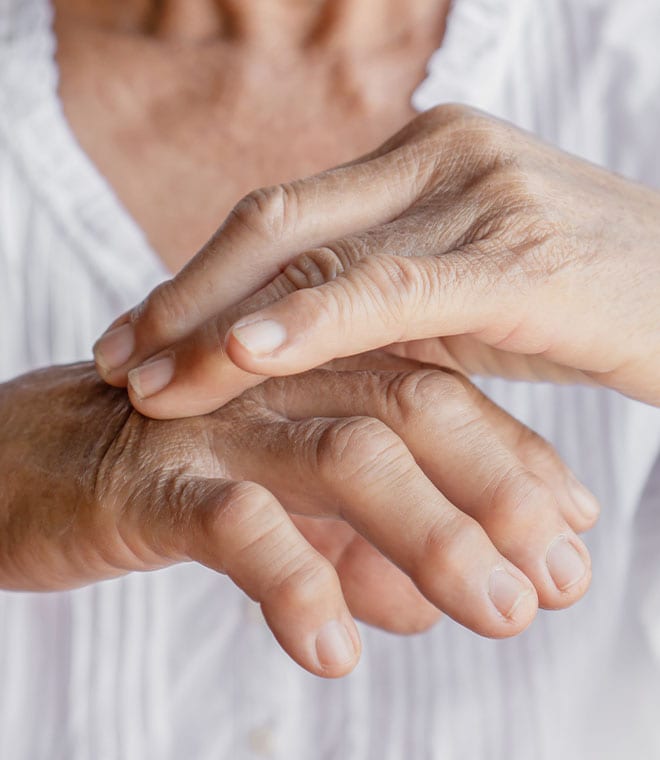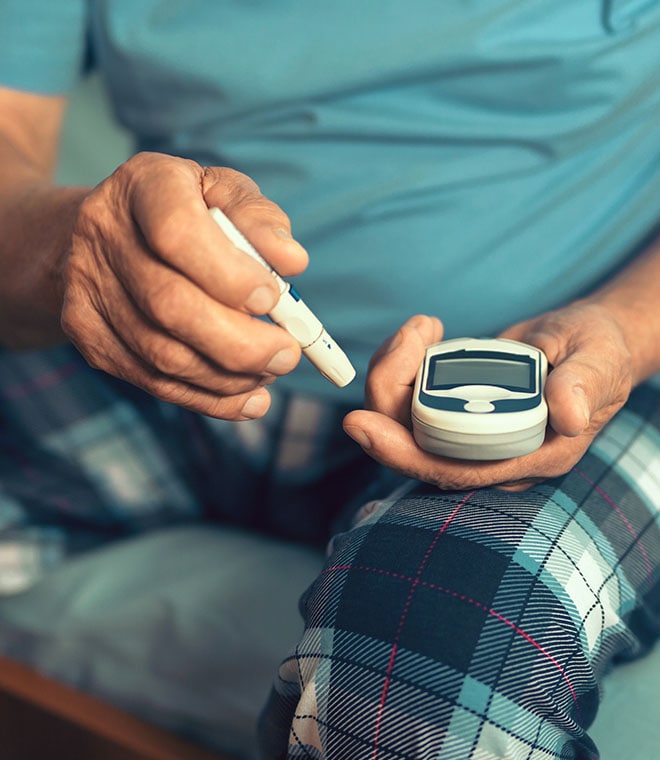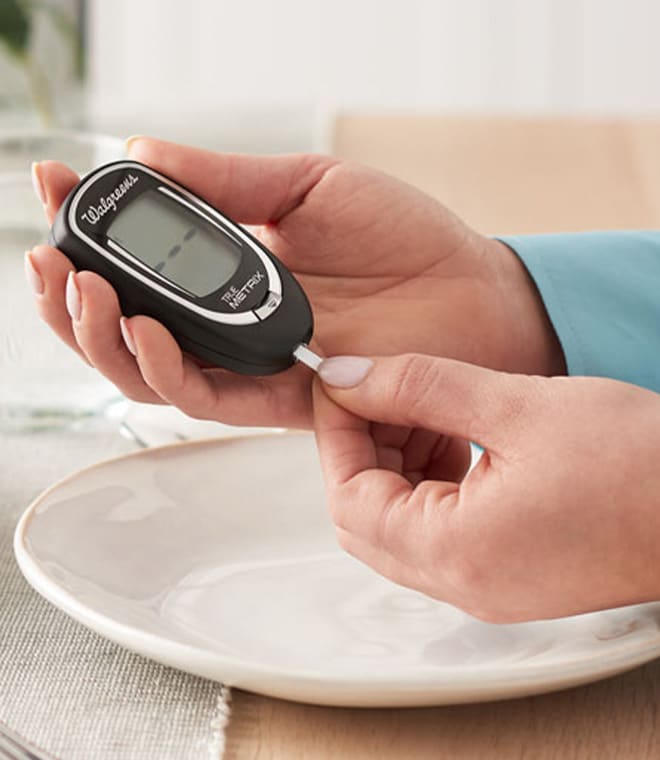Health
Heart disease: Causes, symptoms and treatment
By Keyur Mavani, MD, Fellow of the American College of Cardiology, FACP Jun 07, 2023 • 15 min
Heart disease is the leading cause of death among men and women in the U.S. Understanding this condition can help you spot early warning signs. Making positive changes to your lifestyle can reduce the risk of heart disease or help you manage the condition.
What is heart disease?
Heart disease, or cardiovascular disease, is a term for a group of conditions that affect the heart and the blood vessels. There are several types of heart disease, including:
- Congenital heart disease: A heart problem that is present from birth
- Arrhythmia: Irregularities in heartbeat or rhythm caused by problems with electrical conduction in the heart
- Coronary artery disease: Problems with the blood vessels that carry blood to the heart muscles
- Ischemic heart disease: A condition where the arteries become narrowed, reducing the amount of oxygen and blood that reaches the heart muscles
- Atherosclerotic vascular disease: A condition where the arteries that carry oxygen from the blood become stiff, reducing circulation to the rest of the body
- Rheumatic heart disease: Damage to the heart valves caused by a rheumatic fever infection
- Valvular heart disease: A condition where one or more of the valves that control the flow of blood into the heart become damaged or diseased; referred to as heart valve disease
The most common type of heart disease in the U.S. is coronary artery disease, or CAD. Often, when people use the term heart disease, they actually mean CAD.
What causes heart disease?
Each form of heart disease has its own set of potential causes, such as an infection or birth defect. Two main factors cause CAD: the accumulation of plaque in the arteries and problems with blood vessels.
Plaque is a mix of fat, calcium, cholesterol and other substances in blood that builds up in arteries. The formation of plaque buildup interferes with blood flow and increases the risk of blood clots. When a clot disrupts the flow of blood to the heart, a person may have a heart attack. Clots that cut off the supply of oxygen-rich blood to the brain can cause a stroke.
In a healthy person, the blood vessels naturally widen to increase blood flow during physical exertion and times of stress. Although experts still don’t completely understand why, the blood vessels in some people with heart disease don’t work properly. Instead of widening as needed, they may stay the same or become narrower. As a result, the body doesn’t get enough oxygen and blood to function properly.
What are the risk factors in cardiovascular disease?
Certain factors can make you more likely to develop heart disease. Some factors can be changed while others can’t.
Nonmodifiable risk factors
Some risk factors for heart disease that can’t be changed include:
- Age: Your risk of developing heart disease increases as you grow older
- Genetics: People with family members who suffered from heart disease are more likely to develop the disease themselves
- Menopause: Hormonal changes that take place during menopause put women at a greater risk of developing heart disease
- Environment: Past exposure to air pollution and harmful chemicals due to where you have lived or worked can increase your risk of developing heart disease
Underlying medical conditions
Individuals with certain medical conditions are more likely to develop heart disease, especially if they don’t get treatment or their treatment plans fail to fully manage their symptoms. Examples of conditions that negatively impact the heart include:
- High blood pressure
- High cholesterol
- Diabetes
- Preeclampsia
- Kidney disease
- Autoimmune disorders
Lifestyle risks/modifiable risk factors
Knowing the risk factors for heart disease that you can change is an important part of heart disease prevention. If you have any of the following risk factors, addressing them could reduce the risk of developing the disease in the future:
- Diet: Frequently eating foods high in trans fats and saturated fats raises cholesterol and the risk for heart disease. A diet rich in fruits, vegetables, whole grains, lean proteins and legumes can promote heart health.
- Smoking: Cigarettes contribute to vascular inflammation along with high blood pressure and high cholesterol. Quitting can benefit your heart health as well as help prevent certain types of cancer.
- Obesity: People with excess body fat are more likely to develop heart disease. A healthy diet and exercise plan can help you shed excess pounds to lower your risk.
- Lack of exercise: People who lead a sedentary lifestyle are more at risk for heart disease. At least 150 minutes of moderate-intensity exercise, such as walking, can lead to improvements in heart health.
- Alcohol use: Drinking raises blood pressure and excessive alcohol intake can damage the heart. To support heart health, stick to no more than two alcoholic beverages per day if you’re a man or one per day if you’re a woman.
- Stress: Although stress is unlikely to cause heart disease on its own, it can increase blood pressure and contribute to heart disease. Managing stress through deep breathing, meditation and other methods can benefit your heart.
What are symptoms of heart disease?
Heart disease is often a silent condition that doesn’t cause symptoms until a serious medical problem like a heart attack occurs. Some potential early signs of heart disease that may occur during physical activity and stop during times of rest include:
- Chest pain
- Pressure in the chest area
- Shortness of breath
- Dizziness
- Fatigue
It’s possible to have CAD and not experience any symptoms. In fact, many people don’t learn that they have the condition until they suffer a heart attack. The classic symptoms of a heart attack include:
Chest pain that feels like pressure, burning or tightness
Pain that radiates to the arms, jaw, shoulders, throat or back
- Cold sweats
- Dizziness and lightheadedness
- Shortness of breath
- Weakness
During a heart attack, symptoms usually start suddenly and persist. Heart attack warning signs and symptoms of heart disease in women are often different than in men.
Women aren’t as likely to experience chest pain when suffering a heart attack. Nausea, stomach pain, dizziness, extreme fatigue and pressure or tightness in the chest are more common.
Is heart disease curable?
Unfortunately, there is no cure for heart disease. Although researchers continue to work toward finding a cure, there is no medication or treatment that can fully eliminate plaque from the arteries. However, you can make lifestyle changes that may help prevent further complications.
Can you reverse heart disease?
Heart disease is a lifelong condition. Once you develop it, you will have the disease for the rest of your life. The good news is that a combination of medications and lifestyle changes can reduce plaque levels in some people and slow down the formation of new plaque.
Lifestyle changes for managing heart disease include eating a healthy diet, exercising, lowering your blood pressure and cholesterol and controlling underlying conditions that contribute to the disease. Treatment may also include:
- Medications: Healthcare providers can prescribe medications for addressing heart disease risk factors, such as high blood pressure and cholesterol. There are also drugs that can improve symptoms in people with heart failure and abnormal heart rhythms due to heart disease.
- Surgery: Surgical procedures can open up the arteries or bypass blockages to improve blood flow.
- Cardiac rehabilitation: Supervised exercise programs can strengthen the heart, which can help reduce symptoms.
If you’re experiencing symptoms of heart disease, talk to your healthcare provider. They can order tests to determine whether you have the condition and then work with you to develop a treatment plan that can reduce your risk of suffering a heart attack, stroke or premature death due to heart disease.
Updated June 2023.
Sources:
- https://www.cdc.gov/heartdisease/about.htm
- ttps://www.mayoclinic.org/diseases-conditions/arteriosclerosis-atherosclerosis/symptoms-causes/syc-20350569
- https://www.health.harvard.edu/heart-health/ask_the_doctor_is_it_possible_to_reverse_coronary_artery_disease
- https://health.clevelandclinic.org/is-heart-disease-curable/
- https://my.clevelandclinic.org/health/diseases/21493-cardiovascular-disease
- https://www.nhlbi.nih.gov/health/coronary-heart-disease
- https://www.nhlbi.nih.gov/health/coronary-heart-disease/causes
- https://www.nhlbi.nih.gov/health/coronary-heart-disease/symptoms
- https://my.clevelandclinic.org/health/diseases/24129-heart-disease
- https://my.clevelandclinic.org/health/articles/17385-heart-disease-prevention-and-reversal
- https://www.mayoclinic.org/diseases-conditions/heart-disease/symptoms-causes/syc-20353118
- https://www.cdc.gov/heartdisease/facts.htm
- https://www.mayoclinic.org/diseases-conditions/heart-disease/in-depth/heart-disease/art-20046167
- https://www.hopkinsmedicine.org/health/conditions-and-diseases/rheumatic-heart-disease
- https://www.heart.org/en/health-topics/heart-attack/about-heart-attacks/silent-ischemia-and-ischemic-heart-disease
- https://www.cdc.gov/heartdisease/valvular_disease.htm



